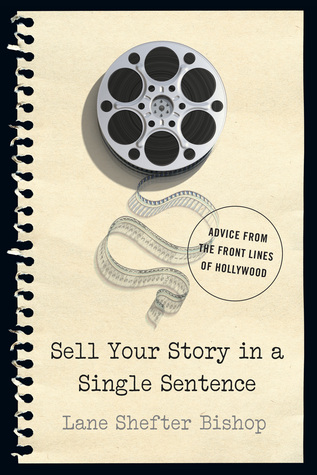Wandering through the 800s in the library, I spotted this book when I was feeling frustrated with my efforts to summarize a book-length project. So many hours spent on just a few sentences. So many ways to tell it slant. So few words at the end of a writing session.
Lane Shefter Bishop’s book seemed the perfect match. As the CEO of Vast Entertainment, which specializes in screen adaptations from longer narratives, she has many years of experience hearing and shaping the elevator pitch.
Between 2011 and 2016, 45% of the Academy Award nominees for Best Picture were based on books: someone came up with an enticing pitch for each of these projects and Bishop points to the primary importance of a logline in that process.
A logline is a powerfully crafted single sentence that highlights the most unique element(s) of your work. In short, it shows others why they should want what you have.
In some ways, she spends more time discussing what the logline is not than what the logline is. It’s not the recitation of “one film title MEETS other film title”, which is open to misinterpretation. It’s not the back cover blurb, which is more generic. It’s not the movie-poster copy, which belongs in marketing team meetings. And it’s not a rehashing of the entire plot.
But the bulk of the book is comprised of examples of loglines, (and, later, exercises) accompanied by advice and suggestions for constructing them effectively.
Given her background, it’s appropriate that Bishop turns to the screen and stage (predominantly screen) for her examples. When it comes to “Wicked”, for instance, she is evaluating the musical stage production, not Gregory Maguire’s novel, which was the inspiration for it.
For prose writers, like me, who are all about books, this does introduce an element of distance, and overlooks the really interesting detail of how the logline for the novel Wicked might have differed from the logline for the stage production “Wicked”; nonetheless, the idea of crafting summary sentences is a skill required by a variety of professionals, so this did not put me off the work.
She nearly always includes a “Rough” logline which she then corrects (visibly, with strike-outs) into a “Redo”, and increasingly as the book progresses, she ends with a “Clean” version. (It’s puzzling why she doesn’t offer final versions of all of them. Why, for instance, not offer a clean version of “Pretty Woman”, when most readers would be familiar with the film and might find the development progress interesting.)
She focusses on three anchors in a logline:
Who is the protagonist?
What do they want?
What is at stake?
Each of these anchors receives some detailed consideration and Bishop does offer a rule-set. The challenge, however, is that ultimately it is a matter of taste and contradictions abound because human beings are contradictory creatures: we like what we like and that doesn’t follow a rule-set.
So Bishop’s rule-set is ever-shifting. In one instance, a logline is rewritten to include new details, because “you can never go wrong by being more specific”. In another instance, a logline is rewritten to remove unnecessary details: “Notice by the way, that I removed all reference to the high school. That’s because it doesn’t matter where he delivers his speech.” So, apparently, you can go wrong by being more specific.
Bishop does not call out the subjectivity, however. She relies upon her years of experience to back her conviction about what makes a good logline and suggests that it is a matter of standards.
Perhaps this is wise on her part, because “selling is a way of life” and, as she observes, the world truly revolves around marketing. So, Bishop is selling herself as an expert, and she does so consistently.
For an experienced writer, however, the matter of subjectivity is key, and it’s disappointing to feel that it’s being shuttled into a corner, covered with a sheet like a piece of furniture in a cottage off-season.
Ultimately, there is no unique piece of advice here. Perhaps it was unfair to expect there would be, but the fact that an entire book exists on the matter of writing single-sentence pitches does suggest a particular expertise.
Actually, the unique piece of advice could exist for the writer pitching specifically to Lane Shefter Bishop. But my takeaway is that I simply must do all the things an experienced writer is already doing daily – tweak vocabulary, choose dynamic words, aim to be both accurate and succinct – but, this time, with a single sentence.
Good stuff for beginning writers.
Bishop, Lane Shefter. Selling Your Story in a Single Sentence: Advice from the Frontlines of Hollywood (The Countryman Press – W. W. Norton, 2016)

